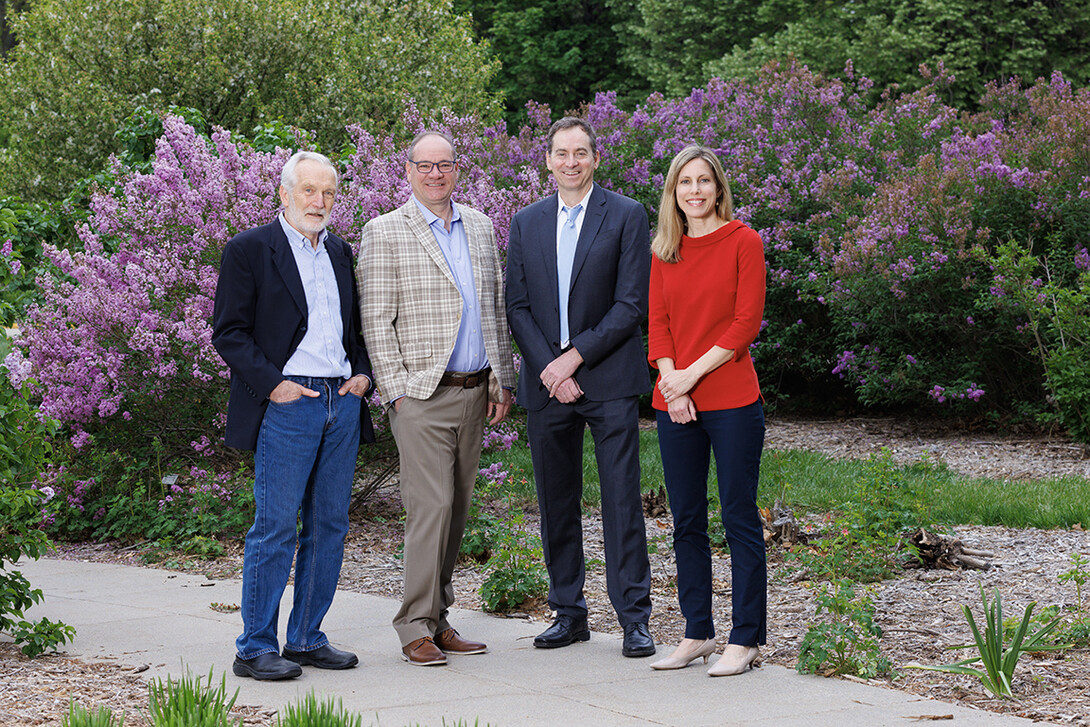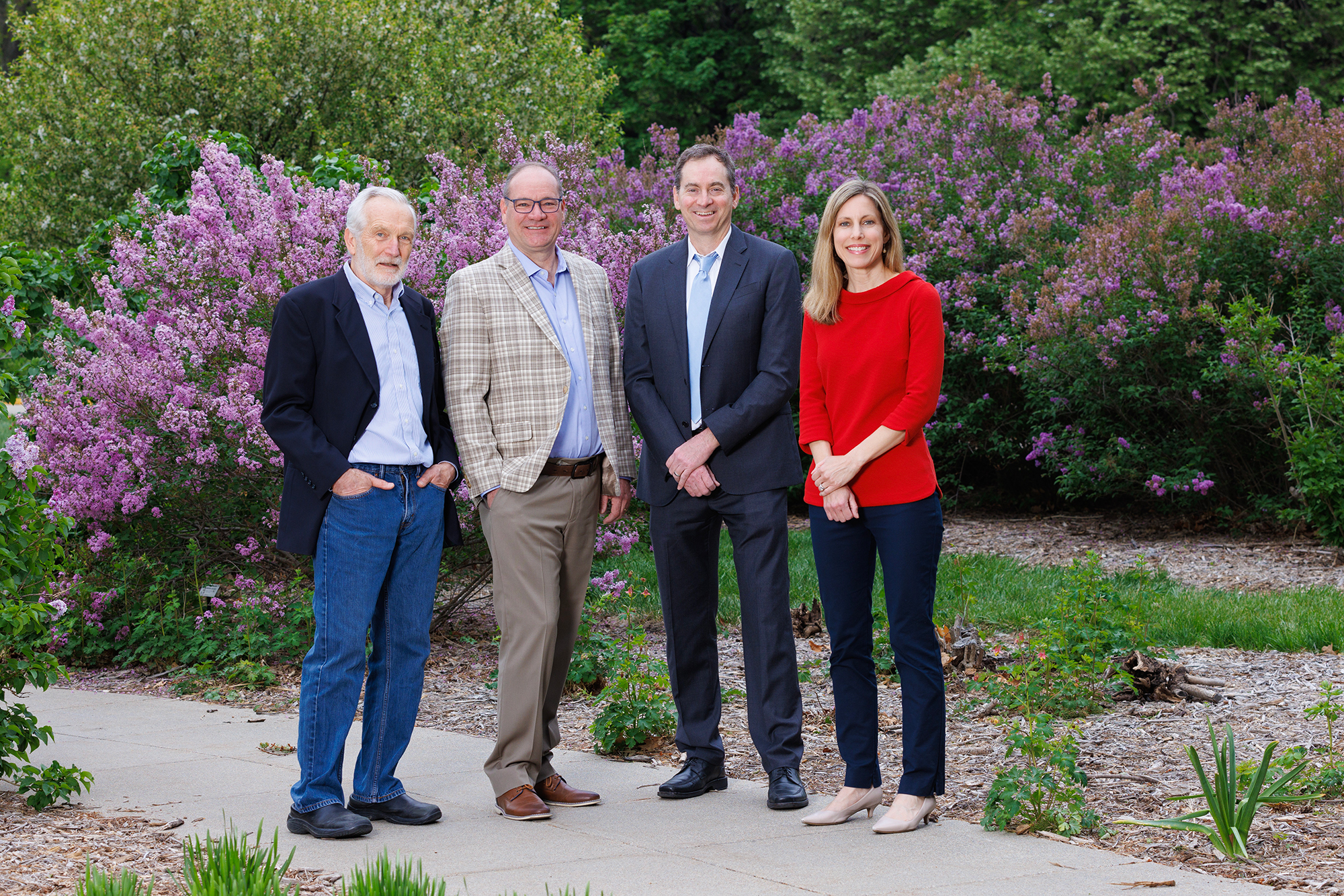
International trade is too complex to be understood using only one academic discipline. That’s why the Clayton Yeutter Institute of International Trade and Finance at the University of Nebraska–Lincoln, which is now marking its fifth anniversary, uses a cross-disciplinary approach in its instruction and events. Students say they benefit from the breadth of insights provided by fields including economics, law, business and policymaking.
“It’s a multidisciplinary approach to teaching,” said John Beghin, professor of agricultural economics and the Yeutter Institute’s faculty chair for ag economics. “It provides good opportunities to learn about international relations — the politics, the economics, the agribusiness dimensions. It’s a good mix of analytical skills and operational skills.”
To date, 29 undergraduate students have participated as Yeutter Student Fellows, including four selected for the upcoming academic year.
The institute provides a broad-based understanding of global trade issues that’s proven vital for personal advancement, said Savannah Gerlach, who graduated in May and is now working as a commodity trader with agribusiness giant ADM. Jill O’Donnell, the Haggart-Work Director of the institute, provides important academic guidance, Gerlach said, and helps students make connections that open up promising opportunities for internships and post-graduation employment.
“Of all my involvement through college, I would say that the Yeutter Institute is the most focused on helping students find success in their career,” said Gerlach, a native of Dewitt, Nebraska. “They’re extremely focused and dedicated to making sure that students are successful.”
Academic diversity is core to the program. Having instructors and presenters from different academic fields makes for a stronger educational experience, said Aline Abayo, a 2022 alumna working as an African issues specialist with the Carnegie Endowment for International Peace.
That breadth of academic backgrounds extends to the institute’s undergraduate student fellows, who can major in any field but spend time together in common trade-focused activities. Abayo, who majored in economics, says the notable variety of majors within her cohort regularly produced worthwhile discussions, broadening students’ understanding.
The institute’s emphasis on multidisciplinary understanding is illustrated by the specializations of its three faculty chairs: Beghin, with the Department of Agricultural Economics; Matthew Schaefer, with the College of Law; and Ed Balistreri, with the College of Business.
“It’s absolutely true that international trade is a very interdisciplinary field,” said Katrin Kuhlmann, an Omaha native and trade specialist who has taught two mini-courses to Yeutter students. “These are really complex questions we’re grappling with. The solutions are not going to come from just one area of study or professional focus.”
That interdisciplinary approach fits in with the example set by the late Clayton Yeutter himself. Yeutter earned three degrees from Nebraska: a Bachelor of Science; a law degree; and a doctorate in agricultural economics. His career encompassed the private sector, as president of the Chicago Mercantile Exchange, as well as agricultural economics and government service, as the U.S. secretary of agriculture and as a trade representative for the federal government.
The institute couples its multidisciplinary approach with extensive engagement with trade professionals. Since 2018, more than 80 outside trade professionals and experts, including current U.S. Trade Representative Katherine Tai, have participated in the institute’s programming through on-campus conferences and student events, as well as webinars and podcasts. Tai spoke with university students in the fall of 2020, when she was serving as chief trade counsel on the House Ways and Means Committee. Four former U.S. trade negotiators have taught mini-courses to undergraduate, graduate and law students on topics ranging from new models for trade agreements to trade with China.
A range of Nebraska agricultural and business professionals and industry representatives also attend a national biennial conference hosted by the Yeutter Institute.
The interdisciplinary approach used by the institute has helped College of Law students who applied for internships. The breadth of trade-focused studies now available through the Yeutter Institute gave the students an “expanse of expertise” that stood out to their interviewers, said Schaefer, professor of law.
Research is another tool to help students gain broad, practical understanding. For the past three summers, undergraduates in Ag Economics and the College of Business have done 10-week internships analyzing economic issues brought by external stakeholders. The research topics have included new export markets for farm equipment and sales prospects for Nebraska’s biorenewable products.
Yeutter emphasized the need for students to understand that times change and decision-makers need to have critical thinking skills to adapt to new conditions, O’Donnell said.
“With that in mind, we try to create opportunities for students to develop that kind of thinking and adaptability,” O’Donnell said. “It’s the skill of learning we hone throughout their time in the program. It’s very important for students to bring fresh and critical thinking to all the fundamental questions that are being asked about trade right now.”








